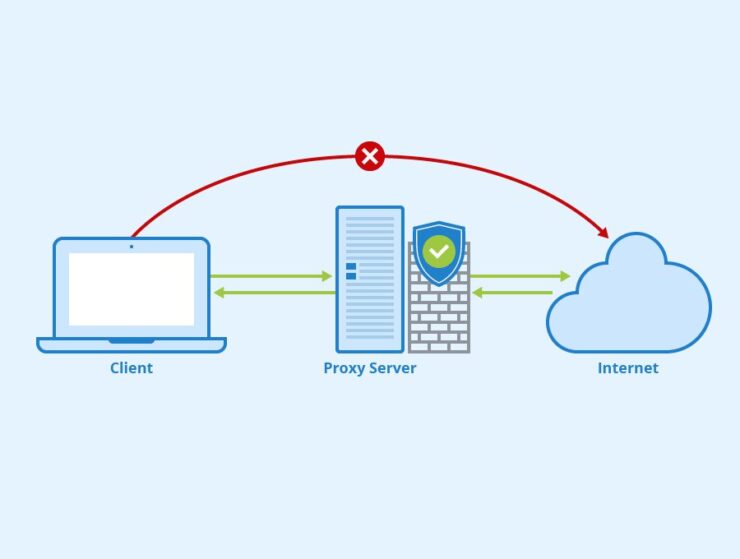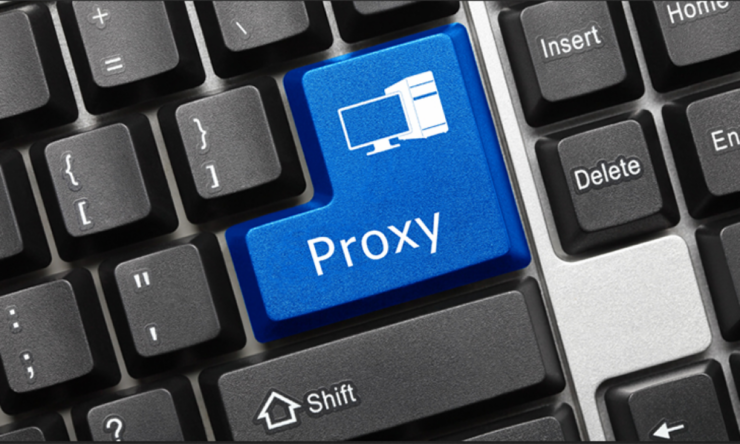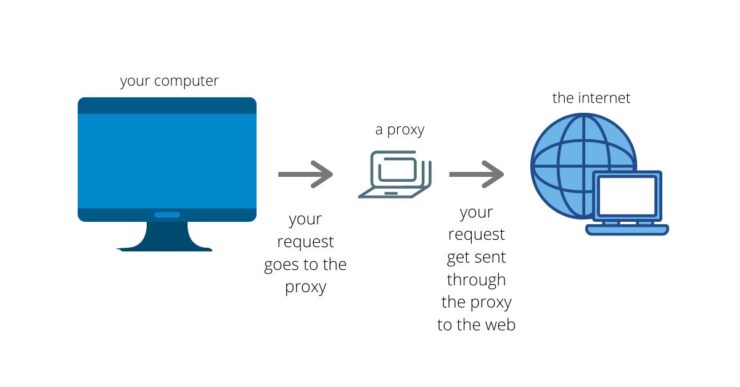In 2022, the FBI received nearly 900,000 cybercrime complaints. While this was a decrease of 5% from the figures of 2021, the losses attributed to such attacks climbed by a whopping 49%.
So, now more than ever before, it is a good idea to invest in added security and privacy with a personal private proxy. Continue reading to know what it is, how it can help you to be safe when browsing the internet, and its benefits.
What exactly is a Proxy Server?

Think of it as an anonymous point of contact between your computer and the internet. Typically when you visit a website, your computer communicates directly with this site.
But, when you use one, your computer remains veiled behind the intermediate server. So, it connects with the proxy, and in response, the server connects with the website.
Because your computer is never directly connected to the internet, you get an added level of security and privacy. So, a server has two main functions:
- To maintain the anonymity of the user/system behind it
- To optimize the use of bandwidth through caching
How do proxy servers work?
Every computer and device that’s connected to the internet has a unique identification number known as the IP address. This number is needed for the flow of information from the internet to the device, much like your home address is needed for your mail to get to you.
Without a proxy, the internet gets access to this unique identifier of your computer. However, when a server is used, this is how things work:
- Your computer sends a request to it instead of directly to the website that you want to connect to.
- It interprets and forwards this request to the appropriate internet server.
- The internet server that is contacted starts sending the data to its IP, much like your mail would be delivered to a PO Box instead of your home address if your PO Box number is the only information you provide.
- It receives the data and extracts and checks it for malware.
- Only if the data is marked safe does it route it to your IP address.
Benefits of Proxy Servers

Despite their simple mechanism, proxy servers offer a range of benefits that are useful for both individual/residential internet users as well as businesses. Here is how they help:
1. They protect data from expensive breaches: As an individual internet user, you are exposed to the very real risk of your personal and financial information being stolen every time you log on to the internet. For a business, this risk is increased manifold because it could have the personal and financial details of thousands of customers, not to mention its own banking and financial data.
If nefarious elements get access to it, they could wipe out your bank account and/or steal your identity. The same could happen to the clients of a business whose data is breached. While it cannot protect a system from all malicious attacks, it sure is an effective added layer of protection.
As far as businesses go, a personal private proxy server can keep malware out and protect it from DDoS attacks, phishing, brand theft and other forms of cyber-attacks.
2. They safeguard your privacy: Because websites never get direct access to your personal information, unless you give it out, you remain 100% anonymous while surfing. For a company, this means keeping its proprietary information and intellectual property out of reach of hackers.
3. Optimized bandwidth usage: Since servers cache frequently visited sites, you can access them faster. Plus, it will typically remove ads from the website and compress the data it has to offer before sending it to you. So, they actually help you to get more from your internet connection.
4. Bypass geopolitical restrictions: Often websites restrict users from certain locations from accessing their content. Restrictions may also be put in place by a governing authority. A proxy can bypass the restrictions in both scenarios.
Because a proxy masks your IP address, the server of the website does not get to know your location. Similarly, because you are not connecting directly with the website, local restrictions won’t apply.
5. Control access to content: Just like a proxy can limit the access that the internet gets to your computer, it can also be used to limit the access that your system gets to the internet. So, if you would like to filter out certain types of content or restrict access to specific websites, you could set your proxy to take care of it for you.
What is a personal private proxy?

As the name says, it is just a proxy that is dedicated to you. So, you will be the only one who gets access to the IP address of your personal proxy.
As opposed to this, with a public proxy, you are just one among several users who are all given the same IP address. While it will still protect you from incoming malware, your system would be vulnerable to attacks from those within this group of users.
Another problem is that when several users have the same IP address, it becomes easy for websites to tell that it is the server being used.
On the other hand, because a personal private proxy is reserved for the exclusive use of one client, user behavior can be mimicked more effectively and websites find it harder to determine that it is at play.
You may have already guessed that the dedicated service must cost more. But, the benefits and the extra protection offered by a personal private proxy are well worth the cost.
Is a proxy server the same as a VPN?
Yes and no! In principle they are the same- they stand between you and the internet. However, a proxy only hides your IP address while a VPN encrypts all data coming to and going from your system.
The additional work means that VPNs are slower and more expensive than proxy servers. Also, complete data encryption is not really needed unless financial transactions and data are involved.
A personal private proxy is the way to go for individual users and small businesses!

If you are looking for a low-cost effective internet security solution that comes with a host of benefits, a personal private proxy will be just right for you.
Of course, you could operate under the misconception that hackers don’t actually target regular folks. But, that could be a disastrous and expensive mistake!
You are right, unless you are very rich or a part of the circle of movers and shakers it is unlikely that you will be specifically targeted. Unscrupulous elements don’t bother to especially target a regular Joe/Jane, they simply send out mass attack programs that target all unprotected systems and users that come their way.
And if you happen to be one of them, chances are that your earnings/savings will become a part of the over $300 billion lost globally by victims of cyber-attacks.
Instead, isn’t it more sensible to play it safe and use a PrivateProxy.me?

